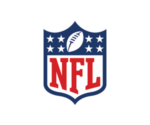 The modern NFL as we know it enjoys a legal privilege through an act of Congress, allowing the league to negotiate TV rights as a single organization and sharing the revenue equally among all the constituent teams. In City Journal, Steven Malanga recounts the history of how that privilege was granted:
The modern NFL as we know it enjoys a legal privilege through an act of Congress, allowing the league to negotiate TV rights as a single organization and sharing the revenue equally among all the constituent teams. In City Journal, Steven Malanga recounts the history of how that privilege was granted:
Many sports fans know that Major League Baseball has a unique exemption from the nation’s antitrust laws, thanks to a 1922 Supreme Court decision, which perplexingly ruled that baseball teams do not engage in interstate commerce. Less well understood, however, is that the National Football League retains its own federal exemption through legislation that has allowed the league’s teams to cooperate on television contracts — a gift from Washington that has been crucial to the development of the modern NFL. Over the years, the exemption has proved controversial, though bipartisan calls to revoke or narrow it have never gained much traction. The exemption deserves a fresh look with the players’ extreme politicization of the league, in which they have been aided and abetted by the owners, who have allowed and even taken part in unprecedented partisan posturing — broadcast to the nation via Congress-approved TV deals.
According to NFL mythology, the league’s success is the result of the vision of its mid-1950s and 1960s leadership, including the marketing savvy of former commissioner Pete Rozelle. But the real cornerstone of the NFL’s rise was successful Washington lobbying by league leadership, after a court ruled in 1961 that NFL teams could not negotiate broadcasting rights as a group, because such power would violate antitrust laws against monopolization. Rozelle got a New York congressman, Emanuel Cellar, who chaired the House Judiciary Committee’s Subcommittee on Anti-Trust and Monopoly, to introduce what’s become known as the Sports Broadcasting Act of 1961, which provided limited antitrust exemption, allowing teams to pool their efforts for the sake of negotiating TV deals. When President Kennedy signed the legislation, it permitted a $4.65 million broadcast deal that the NFL had crafted with CBS for the rights to televise football games. The price of broadcasting packages quickly accelerated, especially after the merger of the NFL and the old AFL, and the antitrust exemption allowed for such singular NFL successes as Monday Night Football, introduced in 1970.
Though the act also applies to professional baseball, hockey, and basketball teams, its significance to the NFL came to outweigh the benefits to other leagues, because pro football—with many fewer games per season—exclusively and collectively sells all its TV rights through monopoly pooling, then distributes the revenues to teams equally. Without this exemption, each team would have to negotiate its television contracts individually, which would be fine for powerful teams like the Dallas Cowboys that could probably arrange to have all their games broadcast nationally, but less advantageous for weak teams such as the Cleveland Browns, which might struggle even for local coverage.
[…] The majority of companies in America would not, and do not, allow demonstrations at work by individual employees on political issues unrelated to their employment — just the sort of demonstrations begun last year by former San Francisco 49ers quarterback Colin Kaepernick, and carried on through this weekend by more than 200 players. That the owners have tolerated and lately even encouraged such protests over an issue — charges of police brutality — that divides many Americans is a business risk that they seem willing to take. But the league’s use of its platform — created by its federal antitrust exemption — to broadcast its message across the country is more than a simple business matter. It represents an improper use of resources made available to the NFL by special federal legislation. It’s past time to revoke the Sports Broadcasting Act — and let the “chips fall where they may.”



